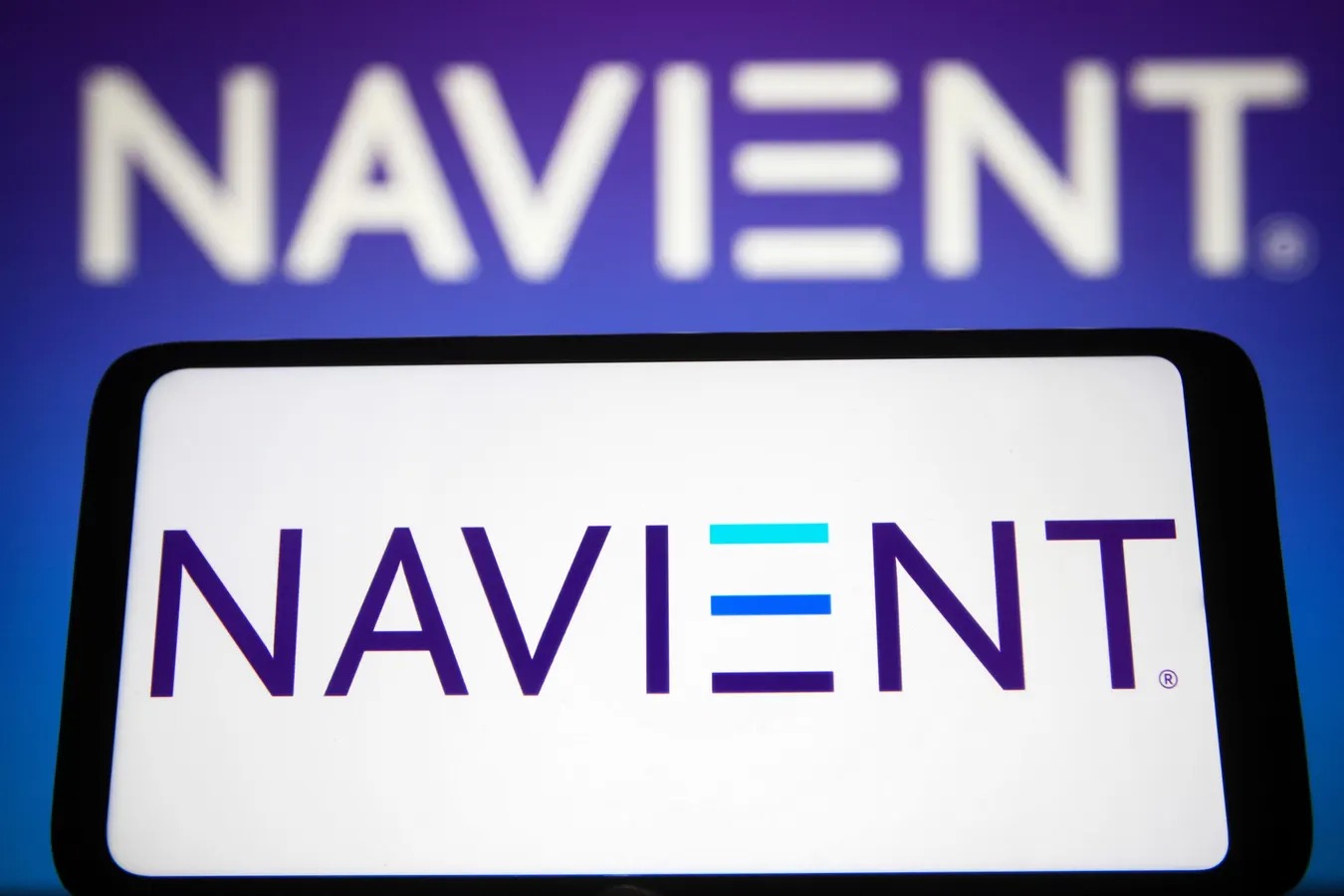Home>Finance>How To Extend My Grace Period For Student Loans?


Finance
How To Extend My Grace Period For Student Loans?
Published: February 20, 2024
Learn how to manage your student loans and extend your grace period with these helpful finance tips. Take control of your finances and plan for a secure future.
(Many of the links in this article redirect to a specific reviewed product. Your purchase of these products through affiliate links helps to generate commission for LiveWell, at no extra cost. Learn more)
Table of Contents
Understanding Grace Periods for Student Loans
When it comes to student loans, the grace period refers to the time frame after graduation, leaving school, or dropping below half-time enrollment when you are not required to make payments. This period offers a transition from student life to entering the workforce, allowing you to get your finances in order before the burden of loan repayment begins.
Typically, the grace period for federal student loans is six months, but it’s essential to check with your loan servicer to confirm the specific terms of your grace period. During this time, interest may accrue on certain types of loans, so it’s crucial to understand the details of your loan agreement.
Understanding the terms of your grace period is vital for effective financial planning. It provides an opportunity to assess your financial situation, explore employment prospects, and create a budget that accommodates future loan payments. By comprehending the nuances of your grace period, you can make informed decisions about managing your student loan debt.
During the grace period, it’s wise to research and prepare for the various repayment options available to you. This includes understanding the potential benefits of different repayment plans, such as income-driven options, as well as familiarizing yourself with the requirements for loan consolidation or refinancing. By using this time wisely, you can set the stage for a smoother transition into the repayment phase of your student loans.
Options for Extending Your Grace Period
While the standard grace period for student loans provides a valuable window for financial preparation, certain circumstances may necessitate an extension of this period. Understanding the options available for extending your grace period can offer valuable flexibility in managing your student loan repayment.
One potential avenue for extending your grace period is returning to school on at least a half-time basis. By enrolling in an eligible educational program, you may be able to defer your loan payments while continuing your studies. This option provides a way to further your education while temporarily postponing the obligation to make payments on your student loans.
Another option for extending your grace period involves entering a period of active duty military service. Members of the military may qualify for deferment of their student loans during periods of active duty, providing breathing room for managing their financial obligations while serving their country.
For individuals experiencing economic hardship or facing unexpected financial challenges, applying for a deferment or forbearance can offer a temporary reprieve from making loan payments. Deferment and forbearance are options that allow borrowers to temporarily postpone or reduce their monthly payments, providing relief during difficult times.
It’s important to note that while extending your grace period can provide temporary relief, interest may continue to accrue on certain types of loans. Therefore, carefully evaluating the long-term implications of extending your grace period is essential to make informed decisions about managing your student loan debt.
Exploring the available options for extending your grace period empowers you to make choices that align with your financial circumstances and long-term goals. By understanding the alternatives for postponing or adjusting your loan payments, you can navigate the complexities of student loan repayment with greater flexibility and control.
Applying for a Deferment or Forbearance
When facing financial hardship or encountering unexpected challenges that affect your ability to make student loan payments, applying for a deferment or forbearance can provide temporary relief. These options offer borrowers the opportunity to pause or reduce their monthly loan payments, offering a measure of flexibility during difficult times.
Deferment is a period during which repayment of the principal balance of your loan is temporarily postponed. This option may be available in various situations, such as returning to school on at least a half-time basis, experiencing unemployment, or encountering economic hardship. By meeting the eligibility criteria for deferment, borrowers can halt their loan payments without accruing interest on certain types of loans, such as subsidized federal loans.
Forbearance, on the other hand, allows borrowers to temporarily reduce or suspend their loan payments due to financial difficulties, changes in employment, or medical expenses. Unlike deferment, interest continues to accrue on all types of loans during a forbearance period. This means that while forbearance provides relief from making payments, the overall loan balance may increase over time due to the accruing interest.
When considering deferment or forbearance, it’s essential to communicate with your loan servicer to understand the application process and eligibility requirements. Providing accurate and timely documentation to support your request for deferment or forbearance can streamline the application process and ensure that you receive the assistance you need.
While deferment and forbearance offer temporary solutions for managing student loan payments, it’s important to carefully evaluate the long-term implications of these options. Understanding how interest accrues during deferment and forbearance periods can help borrowers make informed decisions about the best course of action for their financial circumstances.
By exploring the possibilities of deferment and forbearance, borrowers can navigate challenging financial situations with greater flexibility, ensuring that they can effectively manage their student loan debt while addressing unexpected obstacles that may arise.
Exploring Income-Driven Repayment Plans
Income-Driven Repayment (IDR) plans offer a valuable alternative for managing student loan payments, particularly for borrowers facing financial challenges or seeking more manageable repayment options. These plans base monthly payment amounts on the borrower’s income and family size, providing a flexible approach to repaying federal student loans.
There are several types of IDR plans, including Income-Based Repayment (IBR), Pay As You Earn (PAYE), Revised Pay As You Earn (REPAYE), and Income-Contingent Repayment (ICR). Each plan has its own eligibility criteria and calculation method for determining the monthly payment amount based on the borrower’s discretionary income.
One of the primary advantages of IDR plans is their potential to cap monthly payments at a percentage of the borrower’s discretionary income, offering relief for individuals with low income or high levels of student loan debt. Additionally, these plans may provide loan forgiveness after a certain period of consistent repayment, typically 20 or 25 years, depending on the specific IDR plan.
Exploring the details of each IDR plan is crucial for determining which option best aligns with your financial circumstances. By assessing factors such as income, family size, and the types of federal loans held, borrowers can identify the most suitable IDR plan to manage their student loan payments effectively.
Applying for an IDR plan involves submitting an application and documentation to verify income and family size. Once enrolled, borrowers must recertify their income and family size annually to ensure that their monthly payments accurately reflect their current financial situation.
For individuals experiencing financial hardship or seeking more affordable repayment options, IDR plans can offer a pathway to managing student loan debt without undue financial strain. By exploring the benefits and requirements of these plans, borrowers can make informed decisions about selecting the most advantageous IDR plan for their unique circumstances.
Seeking Loan Consolidation Options
For individuals managing multiple federal student loans, loan consolidation offers a strategic approach to streamline repayment and potentially lower monthly payments. Consolidation involves combining multiple federal loans into a single Direct Consolidation Loan, simplifying the repayment process by creating a single monthly payment.
One of the primary benefits of loan consolidation is the convenience of managing a single loan instead of juggling multiple individual loans. This can reduce the administrative burden of tracking various due dates and payment amounts, providing a more straightforward approach to loan repayment.
Additionally, loan consolidation may extend the repayment term, resulting in a lower monthly payment amount. While this can make repayment more manageable in the short term, it’s essential to consider the potential long-term implications, as extending the repayment period may lead to paying more interest over the life of the loan.
When seeking loan consolidation options, it’s important to assess the types of loans eligible for consolidation and understand the potential impact on interest rates. By consolidating federal loans, borrowers may be able to lock in a fixed interest rate based on the weighted average of the interest rates of the loans being consolidated.
It’s crucial to note that while loan consolidation offers advantages in simplifying repayment and potentially lowering monthly payments, it may not be the best option for everyone. Borrowers should carefully evaluate the terms and implications of consolidation to determine if it aligns with their financial goals and overall repayment strategy.
Before pursuing loan consolidation, it’s advisable to research the specific terms and conditions associated with Direct Consolidation Loans and consider consulting with a financial advisor or loan servicer to gain a comprehensive understanding of the potential benefits and trade-offs.
By exploring loan consolidation options and weighing the associated considerations, borrowers can make informed decisions about streamlining their student loan repayment and achieving greater financial stability.
Communicating with Your Loan Servicer
Establishing open and proactive communication with your loan servicer is essential for effectively managing your student loans. Your loan servicer plays a pivotal role in providing guidance, addressing inquiries, and assisting you in navigating the complexities of loan repayment. By maintaining regular contact with your loan servicer, you can access valuable support and stay informed about available options for managing your student loan debt.
One of the key aspects of communicating with your loan servicer is seeking clarity on the terms and conditions of your loans. Understanding the specifics of your repayment plan, including interest rates, grace periods, and available options for adjusting payments, empowers you to make informed decisions about managing your student loans effectively.
When facing financial challenges or significant life changes, such as job transitions or unexpected expenses, reaching out to your loan servicer can provide insights into potential solutions. Your loan servicer can offer guidance on options such as deferment, forbearance, income-driven repayment plans, and loan consolidation, tailoring their recommendations to your individual circumstances.
Additionally, staying in communication with your loan servicer enables you to stay updated on important deadlines, requirements for recertifying income-driven repayment plans, and any changes in loan terms or regulations. This proactive approach helps you stay ahead of crucial developments and ensures that you remain compliant with necessary procedures.
Should you encounter difficulties in making timely payments, experiencing confusion about your loan terms, or undergoing significant life changes that impact your financial situation, promptly engaging with your loan servicer can lead to constructive solutions. Loan servicers are equipped to provide guidance and support, working with you to explore viable options for managing your student loan obligations.
By fostering a collaborative relationship with your loan servicer, you can gain access to personalized assistance that aligns with your financial needs and goals. Whether through phone calls, emails, or online portals, maintaining open lines of communication with your loan servicer can contribute to a more informed and empowered approach to managing your student loans.














